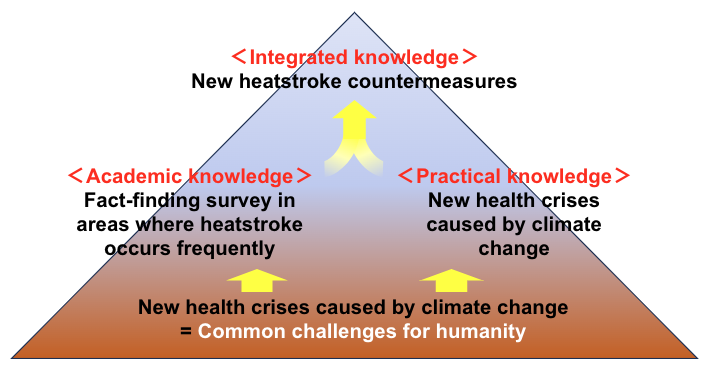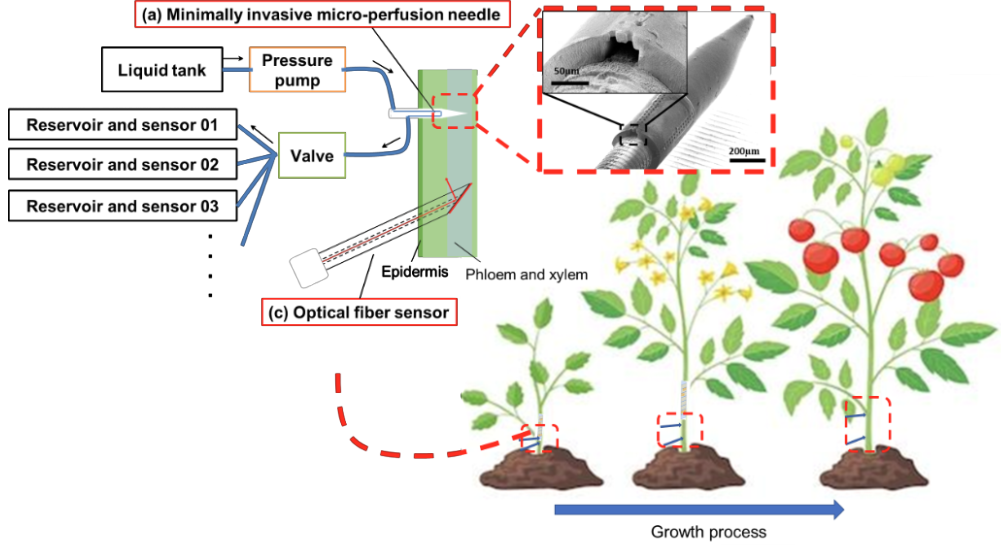Convergence-of-Knowledge Project

Project Leader
Prof. Mitsuru TSUBO, Arid Land Research Center
Project Organization
Establishing extreme environmental physiology to prevent climate change-related mortality and implementing it in society
Group Leader: Professor Takeshi Y. HIYAMA (Faculty of Medicine)
Development of real-time measurement and feedback system for plant cultivation utilizing minimally invasive monitoring techniques to analyze plant components
Group Leader: Associate Professor Tadao MATSUNAKGA (Faculty of Engineering)
Project Introduction
Bringing together knowledge for resolving social issues in arid regions and developing countries
①Establishing Extreme Environmental Physiology to Prevent Climate Change-Related Mortality and Implementing it in Society
Average temperatures are rising rapidly throughout the world with climate change, and as concomitant aridification spreads, increasing numbers of mostly elderly people are dying in developing countries due to high temperatures and increased humidity. Countering this trend is a pressing issue. In Japan too, per capita incidence of heatstroke requiring hospitalization is higher in Tottori Prefecture than in any other part of Japan, and urgent countermeasures are required. For this project, we will bring together specialists in the physiology of dehydration and their counterparts in the research and practice of community medicine to pursue the following objectives: (1) Establish “extreme environmental physiology” as a discipline for researching human physiological responses to extreme conditions caused by environmental degradation (Objective 1. Academic knowledge); (2) Investigate local circumstances and background in locations where heatstroke occurs, and establish effective countermeasures (Objective 2. Practical knowledge); (3) Consider methodologies for involving local communities in implementing countermeasures, and apply them to local communities in developing countries (Objective 3. Social implementation based on integrated knowledge).

②Development of real-time measurement and feedback system for plant cultivation utilizing minimally invasive monitoring techniques to analyze plant components
Improving the efficiency of crop cultivation in different regions of the world requires innovative cultivation techniques such as shortening breeding cycles to provide cultivars suited to particular regions or boosting cultivation efficiency through real-time optimization of cultivation environments. For this project, we will apply medical engineering technology for minimally invasive diagnostic devices to develop a minimally invasive, real-time monitoring system for plant components. Specifically, we will use proprietary technology to make nonplanar microchannel-equipped microneedles with a diameter of 200 μm that we will insert into plants to enable the minimally invasive in-vivo collection of plant fluids. We will analyze the collected plant fluids to measure concentrations of sugar, organic acids, amino compounds, and nitrate that are used as crop management indicators, and use our findings to propose indicators to quantitatively manage plant growth.

